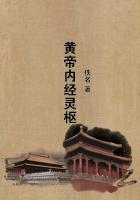But the generals, especially those not Russian, burning to distinguish themselves, to dazzle people, to take some duke or king prisoner for some incomprehensible reason—those generals thought that then, when any battle was sickening and meaningless, was the very time for fighting battles and conquering somebody. Kutuzov simply shrugged his shoulders when they came to him one after another with projects of man?uvres with the ill-shod, half-clothed, and half-starved soldiers, whose numbers had in one month dwindled to one-half without a battle, and who would even, under the most favourable circumstances, have a longer distance to traverse before they reached the frontier than they had come already.
This desire on the part of the generals to distinguish themselves, to execute man?uvres, to attack, and to cut off the enemy, was particularly conspicuous whenever the Russian army did come into contact with the French.
So it was at Krasnoe, where they had expected to find one of the three columns of the French, and stumbled upon Napoleon himself with sixteen thousand troops. In spite of all Kutuzov’s efforts to avoid this disastrous engagement, and to keep his men safe for three days at Krasnoe, there was a slaughter of the disordered bands of the French by the exhausted soldiers of the Russian army.
Toll wrote out a disposition: first column to advance to this spot, and so on. And as always, what was done was not at all in accordance with that disposition. Prince Eugene of Würtemberg kept up a fire from the hills on the mob of French as they raced by, and asked for reinforcements, which did not come. In the nights the French dispersed to get round the Russians, hid themselves in the woods, and all that could struggled on again.
Miloradovitch, who declared that he had no wish to know anything about the commissariat arrangements of his detachment, who could never be found when he was wanted, that chevalier sans peur et sans reproche, as he called himself, always eager for parleys with the French, sent messengers to demand their surrender, wasted time, and did not carry out the orders given him.
“I make you a present of that column, lads,” he said to his men, pointing out the French to his cavalry. And the cavalry, with spur and sabre, urged their broken-down horses into a trot, and with immense effort reached the column he had bestowed on them, that is to say, a mob of frozen, numb, and starving Frenchmen. And the column laid down their weapons and surrendered, which was what they had been longing to do for weeks past.
At Krasnoe there were taken twenty-six thousand prisoners, a hundred cannons, a stick of some sort, which was promptly dubbed a “marshal’s baton.” And the generals disputed among themselves who had gained most distinction in the action, and were delighted at it, though they were full of regret at not having captured Napoleon or some marshal and hero, and blamed one another, and above all Kutuzov, for failing to do so.
These men, drawn on by their own passions, were but the blind instruments of the most melancholy law of necessity; but they believed themselves heroes, and imagined that what they were doing was the noblest and most honourable achievement. They blamed Kutuzov, and declared from the very beginning of the campaign he had prevented them from conquering Napoleon; that he thought of nothing but his own sensual gratifications, and would not advance out of Polotnyany Zavody because he was comfortable there; that he had checked the advance at Krasnoe; that he had completely lost his head when he heard Napoleon was near; that one might really suppose he had a secret understanding with Napoleon, that he had been bought over by him, and so on and so on.
And not only contemporaries, misled by their own passions, have spoken thus. Posterity and history have accepted Napoleon as grand, while foreign writers have called Kutuzov a crafty, dissolute, weak, intriguing old man; and Russians have seen in him a nondescript being, a sort of puppet, only of use owing to his Russian name …














